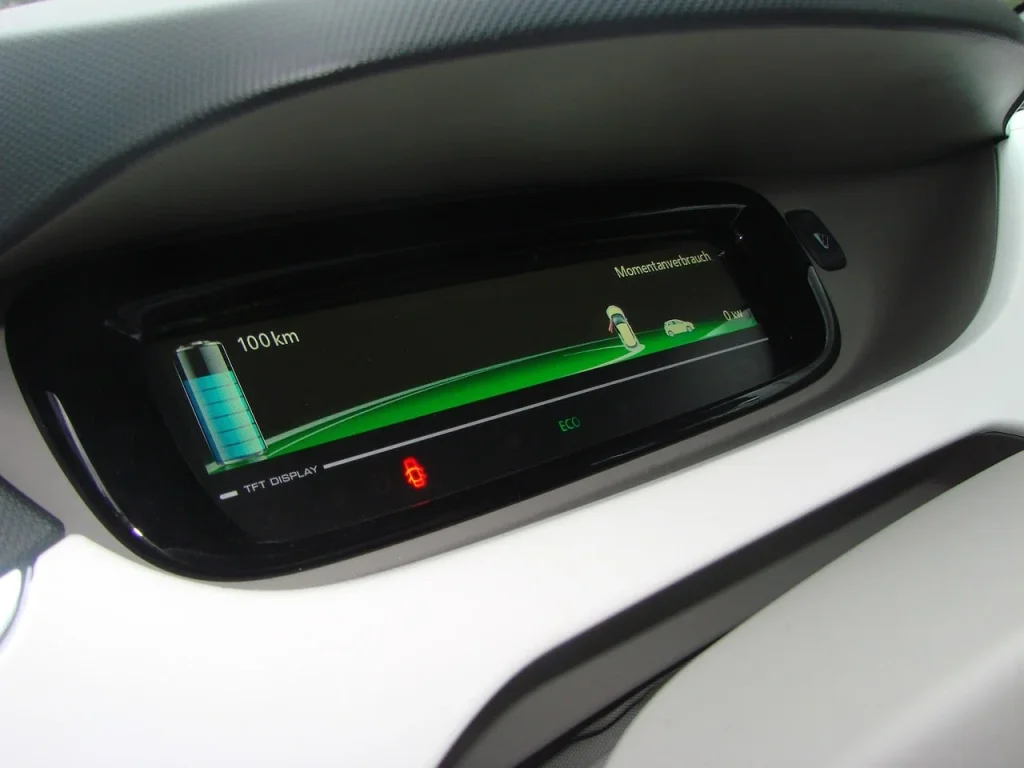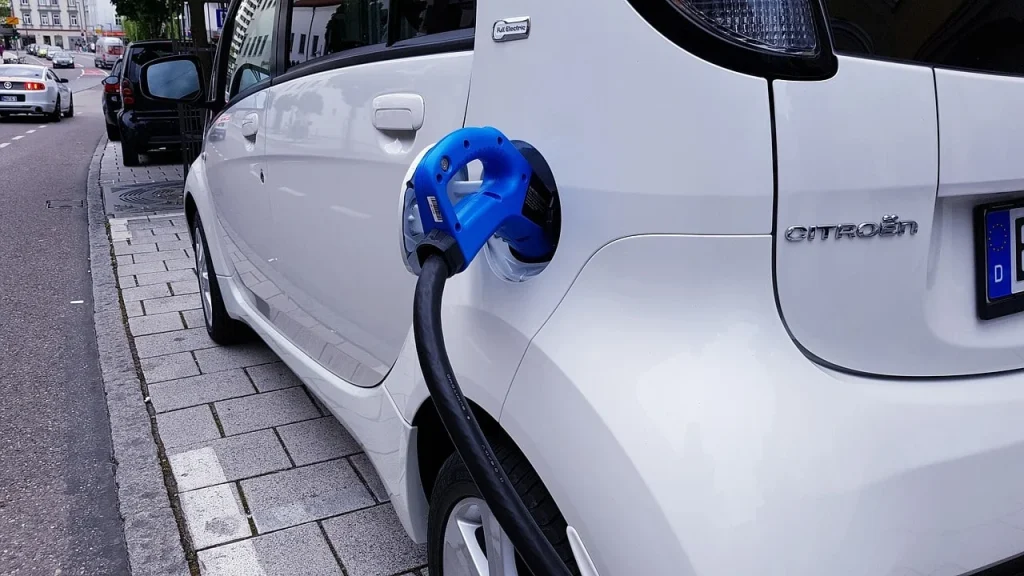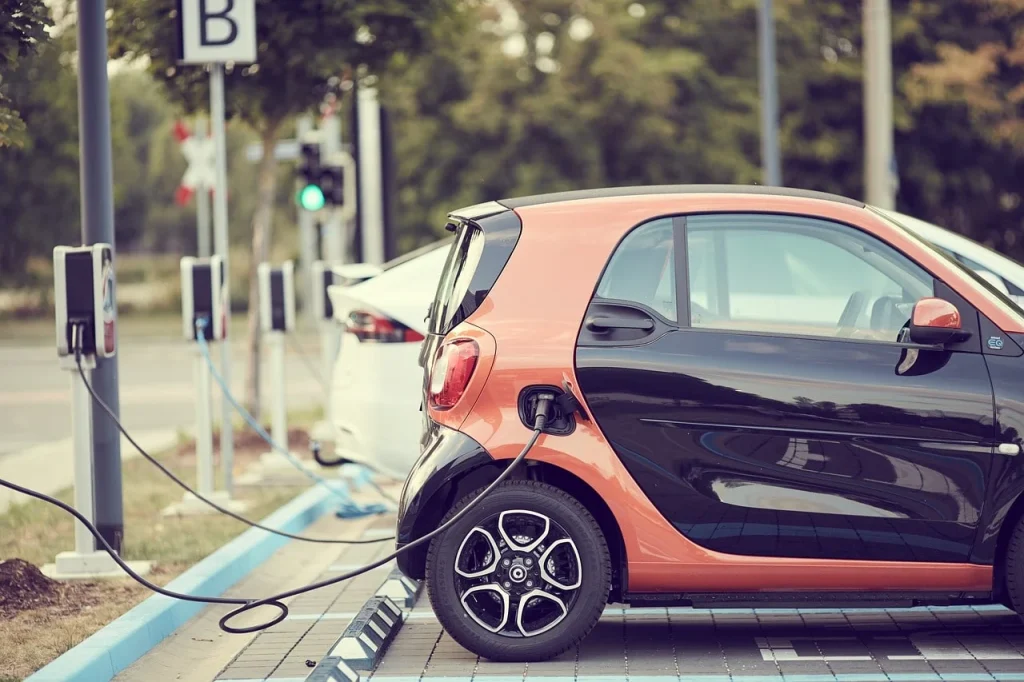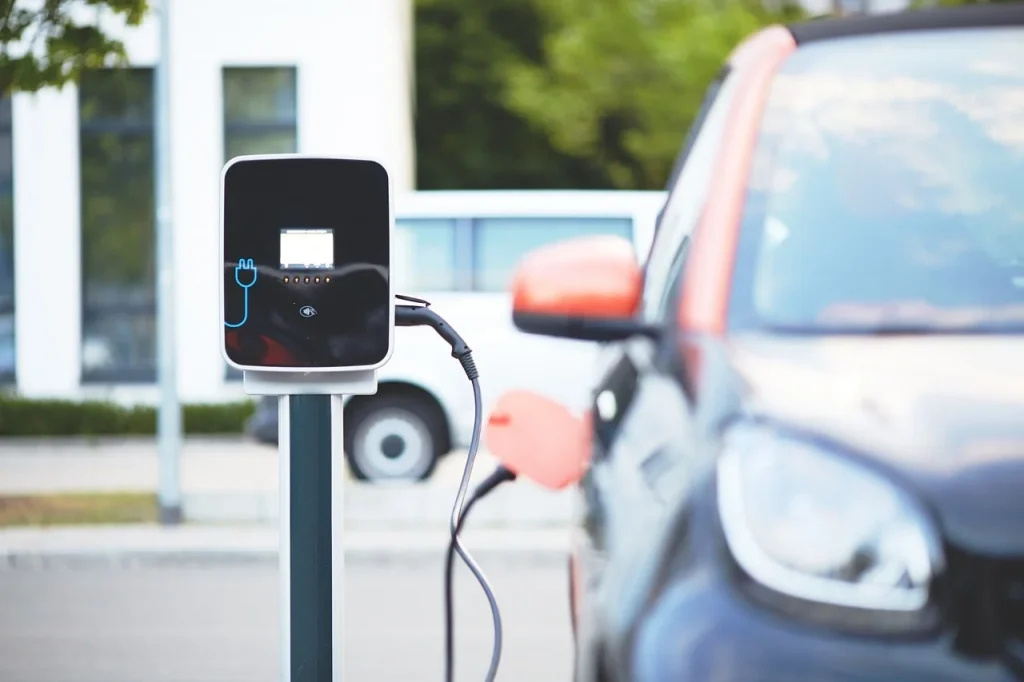When was the last time you passed a vehicle that left no trace of exhaust in the air? More likely than not, it was an electric car. These vehicles are changing the landscape of transportation with every mile they drive.
In this article, we read some compelling facts about electric cars, shedding light on how they are crafted, how they benefit our planet, and how they are gradually becoming the new normal. Join me as we explore the exciting and rapidly evolving world of electric vehicles.
Electric cars are not going to take the market by storm, but it’s going to be a gradual improvement.
Carlos Ghosn
Electric Car Facts
As we explore the innovative world of electric cars, remember to absorb each detail—there’s a quiz waiting at the article’s end to test your expertise!
- As of 2021, Norway had the highest per capita ownership of electric vehicles in the world.
- The first vehicle to use a lithium-ion battery was launched in Japan in 1996.
- Wireless charging for these cars might become commonplace, with roads in some parts charging vehicles as they drive.
- Regenerative braking technology allows these vehicles to convert almost 70% of the kinetic energy back into usable energy.
- The fastest electric car in the world as of 2023, the Rimac Nevera, can achieve 0-60 mph in 1.85 seconds.
- In some countries, driving an electric vehicle grants you access to special traffic lanes and reduced toll rates.
- The largest electric vehicle battery manufacturers are predominantly based in Asia, with China, South Korea, and Japan leading the market.
- By 2040, global sales of these cars are expected to constitute 58% of all new car sales.
- Bi-directional charging allows these cars to supply electricity back to the grid, helping balance demand during peak times.
- Some electric cars use solar panels embedded in the roof to extend the driving range slightly each day.
- A major city’s air quality could improve by 30% if it switched completely to electric vehicles, due to reduced emissions.
- There are ultra-capacitors being developed that could allow these vehicles to charge in minutes, much like filling a tank with gasoline.
- The tires specifically designed for these vehicles can reduce rolling resistance and increase efficiency by up to 20%.

- An electric car motor has about 20 moving parts compared to the 2,000+ in a conventional internal combustion engine.
- QuantumScape, a company backed by Volkswagen, is developing solid-state batteries that could significantly reduce charging times and increase lifespan.
- The first recorded speed record for an electric vehicle was set in 1899, reaching 65 mph, which was astonishing for the time.
- Some luxury models can achieve a range of over 600 miles on a single charge, challenging the dominance of gasoline vehicles.
- Used electric car batteries can be repurposed for home energy storage systems, promoting energy sustainability.
- The average cost to install a home charging station in the U.S. is between $750 and $2,500, depending on the system’s complexity.
- V2G (vehicle-to-grid) technology could potentially turn electric cars into mobile power banks during blackouts or natural disasters.
- The noise reduction from electric vehicles could lower noise pollution levels in cities by up to 40%.
- Some models use augmented reality dashboards to enhance the driving experience, integrating real-world visuals with virtual data overlays.
- Graphene batteries are being developed that may offer five times the energy density of lithium-ion, potentially revolutionizing range and weight.
- As of 2023, California planned to phase out sales of new gasoline cars by 2035, leading to a significant increase in electric vehicle adoption.
- Automakers are exploring using ocean waste plastics converted into durable interior fabrics for these vehicles, promoting environmental sustainability.
- Recycled materials are increasingly being used in the production of electric cars, including plastics and metals, reducing the need for virgin resources.
- In colder climates, electric vehicles can preheat the interior while still connected to the grid, conserving battery life for driving.
- Electric drag racing is becoming a niche sport, with vehicles modified to achieve incredible acceleration rates surpassing traditional drag racers.

- The resale value of electric vehicles has been increasing as battery technology advances, alleviating early concerns about depreciation.
- Some governments offer tax credits and incentives that can reduce the purchase price of an electric vehicle by several thousand dollars.
- Electric vehicle rallies and road trips are becoming popular as a way to showcase the practicality and enjoyment of driving electric.
- Magnetic resonance charging, a type of wireless charging, is being developed to allow even more efficient and flexible charging options for users.
- The first fully electric race car series, Formula E, was established in 2014, promoting innovation in electric mobility.
- Artificial intelligence is being integrated into electric cars to optimize battery management, driving efficiency, and route planning.
- Electric vehicle motors can achieve efficiencies of up to 95%, far surpassing the 20-30% efficiency of traditional combustion engines.
- The adoption of electric cars has spurred the development of new job sectors in battery production, advanced electronics, and sustainable materials.
- Many electric cars can update their software remotely, continuously improving vehicle performance and capabilities over time without the need for a dealership visit.
- The oldest electric vehicle still in operation dates back to 1884, showcasing the long history and durability of electric propulsion.

- Some urban planners are considering the creation of electric-only zones in cities to promote cleaner air and quieter living spaces.
- Many new buildings and residential complexes now include electric vehicle charging ports as a standard amenity to attract eco-conscious residents.
- The energy density of electric car batteries has tripled over the last decade, significantly increasing the possible range of these vehicles.
- Electrolyte additives are being developed to increase the lifetime and safety of electric vehicle batteries, even under extreme conditions.
- Autonomous electric vehicles could one day form mobile power fleets that move to where energy demand is highest, optimizing grid performance.
- Electric cars are typically heavier than their gasoline counterparts due to the weight of the battery, which influences the design and engineering of these vehicles.
- Major cities are installing solar-powered charging stations to reduce the carbon footprint associated with charging electric vehicles.
- Old electric vehicle batteries are often repurposed in less demanding applications, such as powering street lights and community centers, extending their useful life.
- A growing trend is the rise of electric vehicle car-sharing services in urban areas, promoting access without the need for ownership.
- Extreme weather conditions affect battery performance; developers are improving thermal management systems to maintain efficiency in both cold and hot climates.
- Some electric vehicles are designed to float and operate in flood conditions, incorporating watertight seals and buoyant battery compartments for enhanced safety.
- The trend of electric aviation is on the rise, with several companies developing electric planes, which could revolutionize short-haul flights with reduced emissions and noise.
Electric Car Myths

Now that we’ve covered the facts, let’s tackle some common myths about electric cars. It’s time to separate the truth from fiction and see what’s really under the hood.
- Electric Cars Don’t Have Enough Range
It is often believed that electric vehicles (EVs) suffer from insufficient range. However, many modern EVs are designed with ranges that comfortably exceed 200 miles per charge, making them suitable for daily use and longer trips alike. - Electric Cars Are More Expensive Than Gas Cars
While the initial purchase price of electric cars can be higher, it is compensated by lower running costs. Over time, savings are realized through reduced fuel and maintenance expenses, as gas is generally more expensive than electricity and EVs have fewer moving parts. - Electric Cars Take Too Long to Charge
The perception that electric cars take a long time to charge is outdated. Fast charging technology now allows drivers to recharge their batteries up to 80% in as little as 30 minutes, making it comparable to a typical stop during a road trip. - Electric Cars Aren’t Really Environmentally Friendly
Critics often claim that electric cars still impact the environment through their production and electricity usage. Although true, the overall environmental footprint is significantly lower compared to traditional vehicles, especially as renewable energy sources become more prevalent. - Electric Cars Lack Performance
It is a common misconception that electric cars underperform compared to gasoline vehicles. In fact, electric motors provide instant torque, enabling these cars to accelerate quickly and often outperform their gasoline counterparts in speed tests.
Electric Car Quotes

Getting deeper in our journey we reach the quotes section. Feel free to share more quotes in the comments so I can add them to the list as well.
The biggest change in the automotive industry in the past century is upon us with electrification.
Mary Barra
Mary Barra, CEO of General Motors, made this statement reflecting on the transformative shift towards electric vehicles reshaping the automotive industry.
When I was in college, I wanted to be involved in things that would change the world. Now I am.
Elon Musk
Elon Musk, CEO of Tesla, Inc., described his ambition and his role in the electric car revolution, underscoring his commitment to impactful innovations.
The future is electric: there is no escape from it. It’s how we apply it that will define our future.
Anand Mahindra
Anand Mahindra, chairman of Mahindra Group, has voiced his conviction about the inevitability and potential of electric mobility to shape future transportation.
I believe the future is electric and that’s a major part of what the automotive industry must focus on.
Sergio Marchionne
Sergio Marchionne, former CEO of Fiat Chrysler, emphasized the importance of focusing on electric vehicles as an integral part of the future direction of the automotive industry.
Electric cars are going to be very important for urban transportation.
Carlos Ghosn
Reiterating his insights, Carlos Ghosn pointed out the specific importance of electric vehicles in enhancing urban mobility, particularly in reducing pollution and congestion in city environments.
Electric Car FAQ

Before you test your knowledge with the upcoming quiz, let’s tackle some frequently asked questions about electric cars.
- Are electric cars more expensive?
They can be more expensive to purchase upfront compared to similar gas-powered vehicles. However, they often lead to savings over time due to lower fuel and maintenance costs. Prices are expected to continue dropping as technology improves and production scales up. - Can electric cars be charged at home?
Yes, they can be charged at home using a standard electrical outlet or a special home charging station that can charge the car faster. Many electric car owners find home charging to be the most convenient way to keep their vehicles powered. - Will electric cars replace gas cars?
They are becoming more popular and are expected to replace a significant number of gas cars in the future. Many countries and automakers are setting goals to phase out fossil fuel vehicles to reduce emissions and combat climate change. - What electric cars qualify for a tax credit?
In many countries, they qualify for various tax credits and incentives to encourage adoption. In the U.S., for instance, the eligibility for a tax credit depends on the specific model and its battery size, as well as the manufacturer’s sales volume. Always check the latest government resources for the most current information. - Can electric cars be turned off remotely?
Yes, some electric cars come with features that allow them to be turned off or disabled remotely, typically through a smartphone app provided by the manufacturer. This can be particularly useful for managing the car’s charging or for security purposes.
Electric Car Trivia

Welcome to the electric car quiz! If you don’t get these right, we might just replace your car battery with a lemon—literally!
Conclusion
Finally, let’s appreciate how electric cars are revolutionizing our approach to driving. With each electric vehicle that hits the road, we reduce reliance on fossil fuels and help clear the air. These cars might be silent, but their impact on our environment speaks volumes.
They’re here to stay and are getting better every year. So, why not join the electric revolution and experience the joy of driving clean? Till next time, stay curious and explore more. Cheers.
2 Sources Used For This Article

